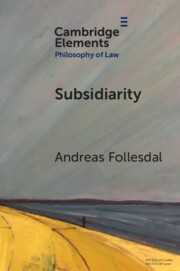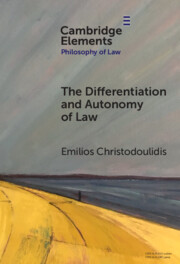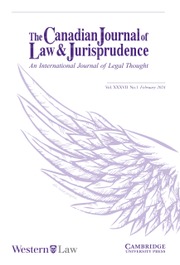Subsidiarity
'Subsidiarity' is vague and contested, yet popular in scholarship about international law due to its role in the European Union (EU). Which conceptions of subsidiarity are more justifiable, and how might they contribute to international law? A principle of subsidiarity concerns how to establish, allocate, or use authority within a social or legal order, stating a rebuttable presumption for the local. Various historical patterns, practices, principles, and justifications offer different recommendations. Seven normative theories vary in how immunity protecting or person promoting they are. The latter appear more justifiable and withstand criticism often raised against subsidiarity. Some conceptions of person promoting subsidiarity serve as a structuring principle for international law and fullfills several criteria of a general principle of law. It can harmonize domestic and international law but is not sufficient to reduce fragmentation among sectors with different objectives.
Product details
February 2025Paperback
9781108995238
100 pages
229 × 152 mm
0.158kg
Available
Table of Contents
- 1. Introduction
- Part I. Historical and Systematic Accounts of Subsidiarity:
- 2. Traditions of subsidiarity: patterns, practices, principles
- 3. Elements of subsidiarity
- 4. Theories of subsidiarity
- 5. Modest conclusions
- Part II. Subsidiarity in International Law:
- 6. Subsidiarity – a general principle of law?
- 7. Inter-systemic coherence: human rights and state sovereignty
- 8. Inter-systemic coherence: subsidiarity in the European union
- 9. Intra-systemic coherence and subsidiarity: human rights in Europe
- 10. Conclusions
- References.






